
On March 12, 2020 households began receiving invitations to complete the 2020 Census. Because of the pandemic, households now have until September 30, 2020 to complete their responses either online, by paper, or by telephone.

This toolkit and webinar from ILRC, CLINIC, and the Center for Constitutional Rights provide and introduction and advice for how immigrant rights advocates can use public records act requests to get information on how immigrants are treated by local and state government agencies. These requests can be an essential part of campaigns to protect immigrant communities.

Enacted on December 20, 2019, the Liberian Refugee Immigration Fairness (LIRF) act began a program that will allow many Liberians living in the United States to apply for permanent residence. The statute originally had a one-year application window that ended on December 20, 2020, but Congress extended the application period another year to December 20, 2021 in the Consolidated Appropriations Act, 2021.
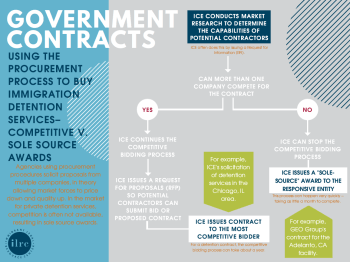
The Department of Homeland Security uses government contracts to acquire immigration detention services. This graphic explains the procurement process, or the competitive bidding process, that government agencies use to purchase services from private contractors and how DHS can use this process to enter into contracts with private prison corporations.

This timeline provides an overview of ICE’s contracts with the City of Adelanto and GEO Group for immigration detention services at the Adelanto ICE Processing Center and how those contracts have evolved over time.
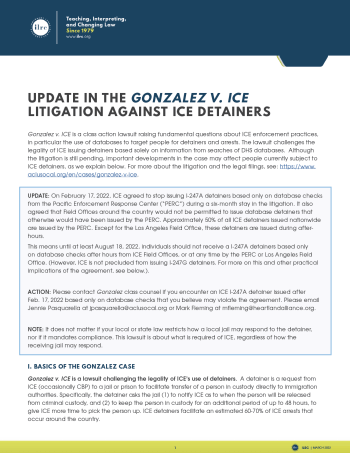
Gonzalez v. ICE is an important class action lawsuit raising fundamental questions about ICE enforcement practices, in particular the use of federal databases to target people for immigration detainers and arrests. This advisory explains the latest developments in the federal courts and how advocates can use these legal theories to defend their clients and communities.

This short resource explains how California laws protect noncitizen youth in the youth justice system from immigration enforcement.
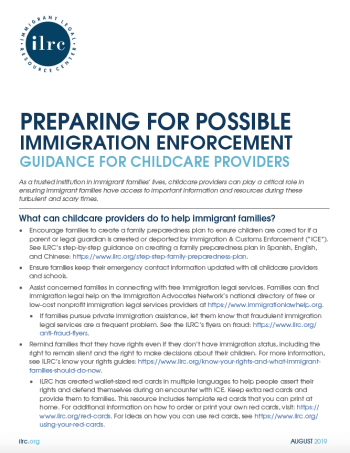
As a trusted institution in immigrant families’ lives, childcare providers can play a critical role in ensuring immigrant families have access to important information and resources during these turbulent and scary times. This resource provides ideas for how childcare providers can support immigrant families.
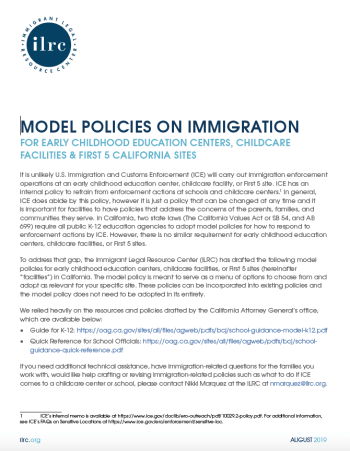
It is unlikely U.S. Immigration and Customs Enforcement (ICE) will carry out immigration enforcement operations at an early childhood education center, childcare facility, or First 5 site. Nonetheless, it is important for facilities to have policies that address the concerns of the parents, families, and communities they serve. Accordingly, the ILRC put together model policies for early childhood education centers, childcare facilities, or First 5 sites in California. The model policies are meant to serve as a menu of options to choose from and adopt as relevant for your specific site. These policies can be incorporated into existing policies and do not need to be adopted in their entirety.
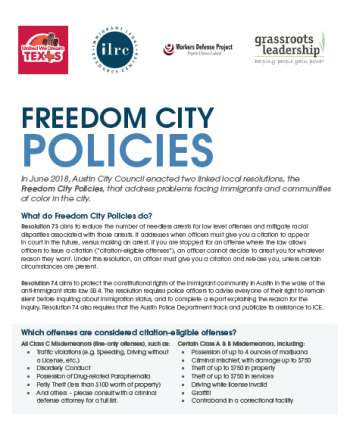
This community resource explains Freedom City Policies in Austin, Texas, an example of organizers, advocates and community members coming together to fight for the decriminalization of immigrants and communities of color. It gives an overview of the policies, why they were enacted, their impact on the community, individuals’ rights under the policies and actions that may be taken if police officers violate those rights. This information is useful for community members and advocates in Austin, Texas.